I have affiliate relationships with Bookshop.org and Malaprop's Bookstore in beautiful Asheville, NC. I will earn a small commission at no additional cost to you if you purchase merchandise through links on my site. Read more on my affiliate page.
Last September, I decided to go to the Decatur Book Festival outside Atlanta for the first time. It sounded like a huge festival and there was bound to be an author I like there, right?
I printed out the schedule at home and then sat down to decide who I was going to see when. I saw Diana Gabaldon, Ridley Pearson, Brandon Sanderson, Karen White, Joshilyn Jackson, Susan Rebecca White, Christina Diaz Gonzalez, and many more.
Out of all of these, the person that I was the most excited to see was someone that I had never even heard of. His name is Baruch G. Goldstein and he is a Holocaust survivor. His book is For Decades I Was Silent: A Holocaust Survivor’s Journey Back to Faith.
Let me explain something first. We aren’t really all that diverse where I live. Oh, Asheville itself is getting there, but outside the city limits? We’re mostly Scotch-Irish Protestants. Needless to say, I have never met a Holocaust survivor before.
Rabbi Goldstein was the last author I planned to see. He was speaking in one of Decatur’s churches. It was packed. I would guess there were between 150-200 people there to see him.
He was a phenomenal speaker. He laid his heart out before us, desperate to have us truly hear his story.
(Forgive me if this is choppy. I have a hard time making posts about meeting people flow nicely, plus I’m writing from notes I took 6 months ago.)
Rabbi Goldstein said that we aren’t learning enough from history. We keep waging wars. He’s not a pacifist, but wars need to stop. We’ve done so many great things, we can do this as well.
Why are we so smart yet so full of hate?
In 1939, there were five people in his immediate family and 45 people in his extended family. After the war, in 1945, he was the only one left in his immediate family and he only had 2 cousins left living out of the other 45. He remembers families from his hometown that no longer exist; everyone was killed in the Holocaust.
He says that 6 million is meaningless to understand, and to understand it, you must put yourself in one person’s shoes. (Oops. I unconsciously echoed this idea in my welcome post.)
He was first arrested when he was trying to get back to his hometown in Poland because of work opportunities there. He was held for 3 months and then released. His mother and brother joined him then, but he never saw his father or sister again.
He was sent to Auschwitz in 1942. At this point, 2 million Jews were already dead. His 16-year-old brother was sent to the crematorium.
We have to remember our history and learn from it. He used an example of the Armenian genocide. No one remembers it now. He will share his story as long as he has a voice because racism, prejudice, and hate are infantile.
He begged us to do better.
He said that God gave us freewill to arrange the world as we want it. We can make it better and we have to make it better.
Just as we are able to hate, we’re able to love. Learn to be appreciative, and love and cherish your friends and family because nothing can replace that love.
I don’t think there was a dry eye in the house when he finished. It is so easy to take our relationships for granted. Sometimes we need a reminder from someone who lost it all that we should appreciate what we have.
He was very gracious as we all thronged around him as he exited to the back of the church. As he walked by me, I noticed something that really hammered everything home for me: the number tattooed on his arm. This wasn’t someone telling me a made-up story, it wasn’t a speaker telling me someone else’s story. This man had lived through the Holocaust, possibly the darkest time in the history of humanity. And he had survived to spread a message of love and hope. How does someone do that? Oh, he mentioned that he lost his faith for a few years, but he regained it and even went on to become a rabbi. And now he has enough love and faith in humanity to tell us that we can and must do better. He is a true survivor. I’m sure that there are plenty of people who survived the camps only to be bitter and mistrust everyone for the rest of their lives (in their shoes that’s probably how I would have been), but this man survived in body and in spirit.
We have to honor the wishes of these elders and remember their experiences and spread love and hope and comfort where we can. Hatred and suspicion is easy. Love and compassion are hard. We can do it. Survivors like Rabbi Goldstein know we can.
This wraps up my Holocaust Remembrance Week posts. I hope you’ve found something you’re interested in, either in my posts or in someone else’s. We must take time to remember this horrible period of history. Thank you for joining me this week.
I have an affiliate relationship with Malaprop’s, my local independent bookstore, and Better World Books. I will receive a small commission at no cost to you if you purchase books through links on my site.

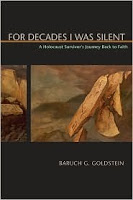

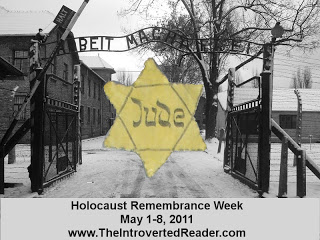
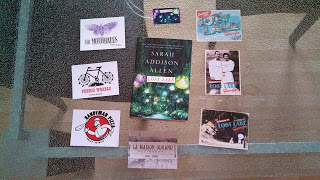
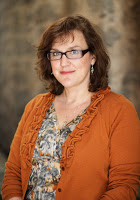
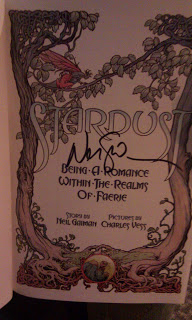
2 Comments
Thank you for your post. It was very very moving to hear a little of the rabbi's story and that he want the same that I think most of us hope for…I hope we can make that change for the good of the world.
Jen
What a great post to wrap up Holocaust Remembrance Week. It is especially important to remember now that so many survivors are begining to pass away from old age and these events begin to feel like long ago history, making them easier to forget.